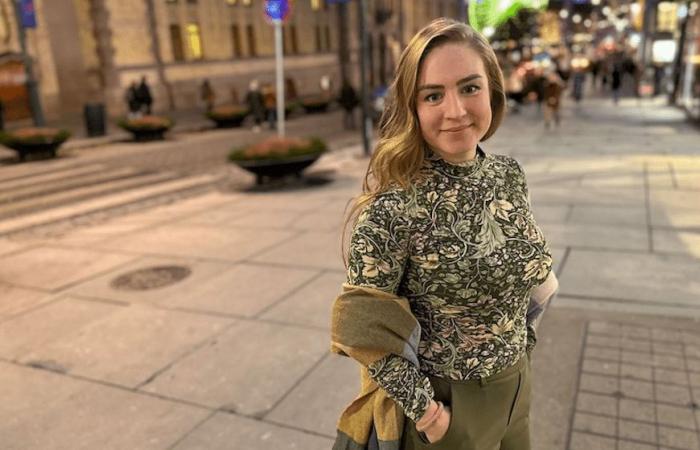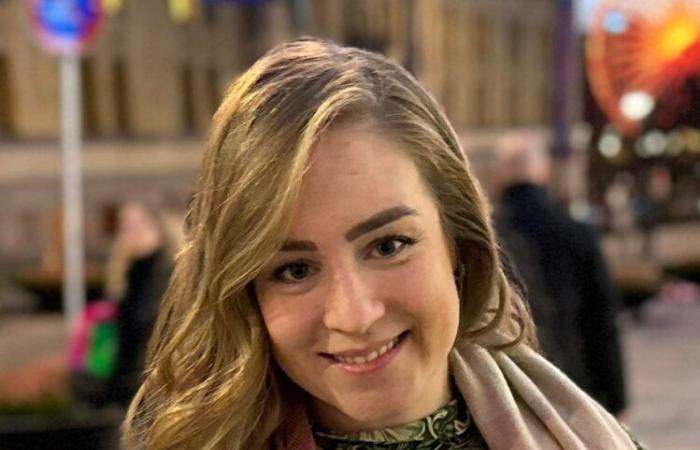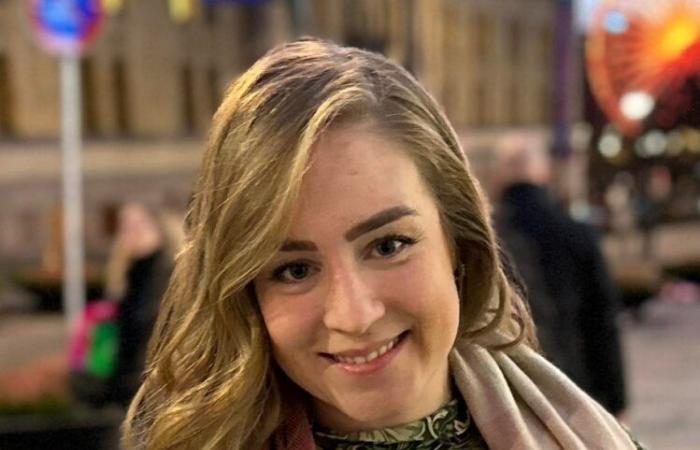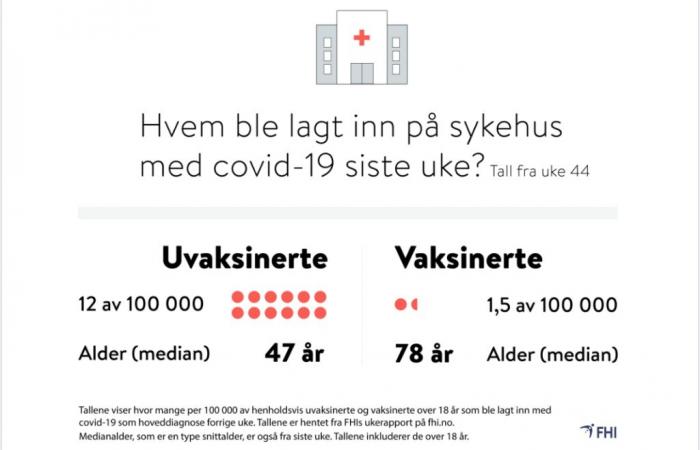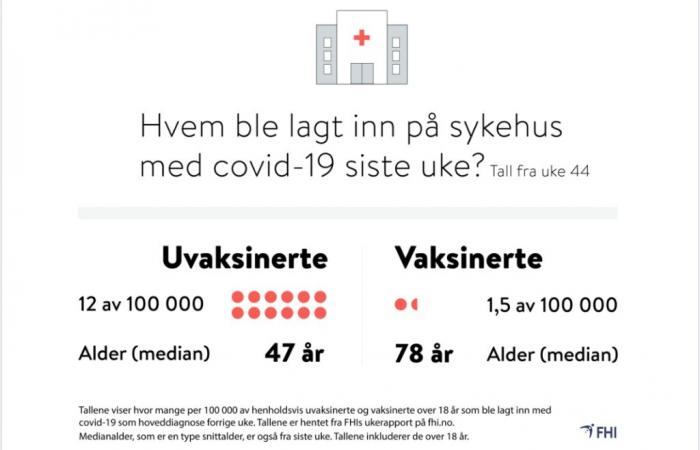![]()
Of Julia Schreiner Benitoeditor at hemali.no7 December 2022.
– If you don’t dare to say what you think and mean, it may end up that you stop thinking, says psychologist Silje Schevig. She sees young people struggling and space for opinion shrinking.
When so much is wrong to think and say, then we adapt to the norm. Especially for young people, it can be difficult that they have to be similar to others in order to be accepted. The difference between “wrong” opinions is more clearly defined now than before. And when you mean wrong, then is you wrong. The danger is that you stop reflecting on what you mean. It can create powerlessness and that we almost stop thinking because there is no point, says Silje Schevig (35).
Taming the mind is a hallmark of totalitarian governments, she points out.
– Suddenly I saw that good people were behaving badly
Silje never believed that Norwegians could be governed by groupthink as she believes we did after March 2020.
– Was it professionally interesting for you?
– Yes, I saw in practice several of the group processes that we learned about in social psychology. Before the pandemic, I had not reflected much on social psychological behaviour. Suddenly I saw that people whom I consider to be good people behaved badly towards others. I thought we couldn’t put that responsibility on the individual.
We have to accept that we can die from disease. And find their way back to each other.
Silje works as a psychologist specialist in Bærum municipality, one day a week she accepts clients in her own practice. The center of Oslo is alight with pre-Christmas and anticipation, it’s almost so easy to forget the crisis we as a society and fellow human beings have lived through.
– We have to accept that we can die from illness. And find their way back to each other.
– I don’t always do what is best for me
Even she doesn’t always act like she talks. In one’s own life, the distance between theory and practice can be large. Silje lives alone and has no children.
– I know that it is not wise to sit alone with difficult thoughts, I know that it helps to seek comfort and support. I don’t always do what’s best for me. I practice giving a little more f and getting back to what matters in life. Like writing what I think and mean about what is happening, then I feel more like an authentic person. I write even if it provokes.
As then Silje 4.11. wrote the statement “The media causes climate anxiety in children” in the cultural newspaper Subjekt. The debate became heated. “Silje Schevig’s alternative and beautified notion of global warming is characterized by well-known myths from climate skeptics,” answered Ole Jacob Madsen and Erik Nakkerud.
Silje Schevig: – Demand for consensus
– Before you could have interesting conversations without drawing conclusions, now it’s more about “who is most right”. Even where the answers are not black and white, we must have a consensus. The culture of “fact checking” has contributed to this. It claims that misinformation is dangerous, but where is the line between error and disagreement?
– Articles are discredited because a small part of it is discussed. Or it becomes a new theory because it is not compatible with defined consensus. If we do not challenge science, we may miss academic breakthroughs. That professional authorities must have some sort of consensus towards decision-makers is a matter of course, but not a requirement for consensus in the public debate. Such a symptom of groupthink has historically been shown to have fatal consequences.
Silje sees children and young people who are struggling. She sees anxiety, depression, refusal to go to school, refusal to eat and an increase in referrals to child and youth psychiatry. Some of what they have been exposed to is reminiscent of propaganda, she believes.
If we do not challenge science, we may miss professional breakthroughs.


The culture of “fact checking” has contributed to demands for consensus
– Like the pillars from the FHI (Public Health Institute) which were supposed to scare people into “choosing correctly” in the vaccine issue. When does the message go from educating the public to arousing emotions in order to provoke what the authorities believe is correct behaviour?
Silje is vaccinated against covid-19, but would not choose the same today.
– I have always thought that vaccines are safe and effective. But with what I know now, I regret taking the mRNA vaccine. Because no one knows the long-term consequences of this hasty choice.


A picture was drawn of the unvaccinated as contagious. It is natural to push away from those we consider dangerous.
Late autumn 2021 will probably remain as a historical image of discord and contempt between Norwegians. Many unvaccinated people sat alone that Christmas. When people are filled with fear, instincts kick in, explains Silje.
– Pointing out a scapegoat is deeply human. Fear is a potent emotion that protects us from danger. We got the impression that the virus was very deadly. In an emergency, it is more difficult to think rationally.
– A picture was painted that the unvaccinated were more contagious. It is natural for us to push away from those we consider dangerous. Survival is more important than anything and emotions are primitive, they have been there since before language. The emotional part of the brain is not always in touch with the thinking, the feeling of fear “hangs on”, even when reality changes. Once you have been startled, it is therefore difficult to correct the picture, despite new information. Even though we now know that the vaccine against covid-19 does not prevent infection, it can feel impossible to say sorry for an injustice that was committed.
I admired those who managed to stand up to the pressure.
– Many had to choose between bodily autonomy, or being ostracized by the pack. Either do something that felt wrong for yourself, or adapt. I think a lot of people don’t understand how awful that choice could feel. Being part of a social community is one of our most basic needs.
– I admired those who managed to stand up to the pressure. A picture was painted that “everything” was the fault of the unvaccinated. If in retrospect you see that you had no reason to judge, you either have to adjust the image of yourself as a good person and admit that you made a mistake. Or you have to explain away the facts and stick to your position. It is easier to blame others than to take responsibility. Cognitive dissonance can occur when your values are not in line with your actions. Besides, it is embarrassing to be deceived. Many also do not realize that the incitement against the unvaccinated was groundless, says Silje.
Moreover, the stereotypes went both ways.
– The vaccinated were branded as “a sleeping flock of sheep”. Some of them now experience hatred and hovering. On both sides, individuals were seen as a homogenous group: if you are not vaccinated, then you are automatically a conspiracy theorist, anti-scientific, selfish and perhaps dangerous. This is how we missed nuances that we would otherwise have noticed.
Totalitarian tendencies
– Also, did we see any totalitarian tendencies?
– Yes. People informed each other, and they informed the employer about employees’ attitudes towards health choices. I’m afraid it has to get worse before we realize how wrong this is, and I wonder where we’re going. The attitude is that questions critical of power threaten democracy. I mean the opposite.
Precisely in crises, we need a devil’s advocate to avoid groupthink, says Silje.
It is precisely in crises that we need debate
– Instead, the attitude was that because a crisis had been declared, everyone had to agree. It is precisely in crises that we should not act with a crisis pulse without discussing all aspects. The basis for shutdown, for example. It was an imaginary crisis, a modeling of what could happen if we did not act. We are now seeing the same when it comes to the climate crisis. What if the premises are wrong? Silje misses a free and independent press that does not just pass on the narrative of those in power.
– What does it take to achieve reconciliation?
– We must try to understand the other’s perspective. Both must understand how the other has been and work with their own empathy. Bitterness and attacks make reconciliation difficult, but not everything is to be forgotten and forgiven.
Silje marvels at how little the concept of health has become.
– Suddenly, health is only about not dying from viruses. Where did the message that health anxiety, isolation and loneliness affect the immune system go?
This article was first published by hemalia.

Tags: Psychologist Silje Schevig Historically groupthink fatal consequences
-
